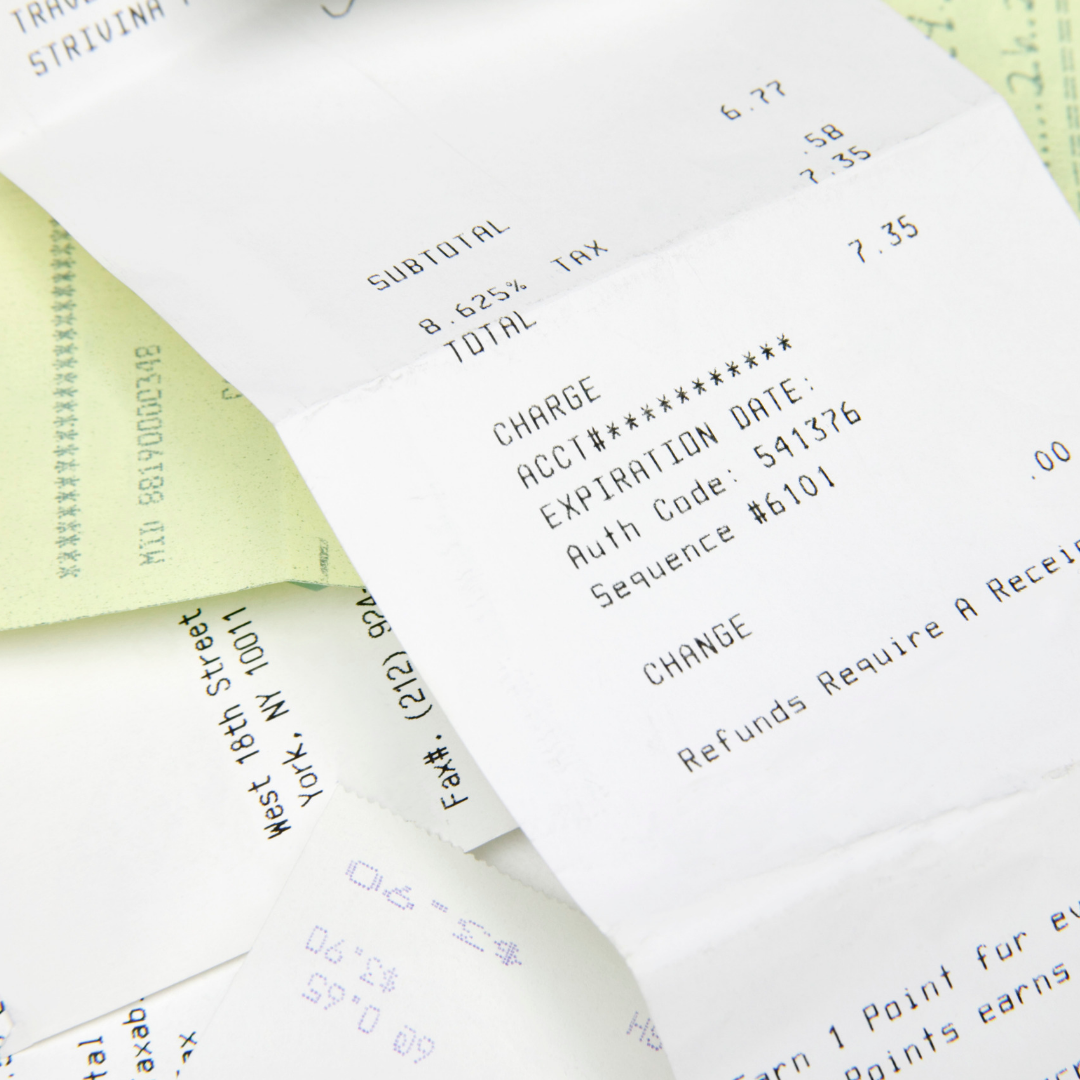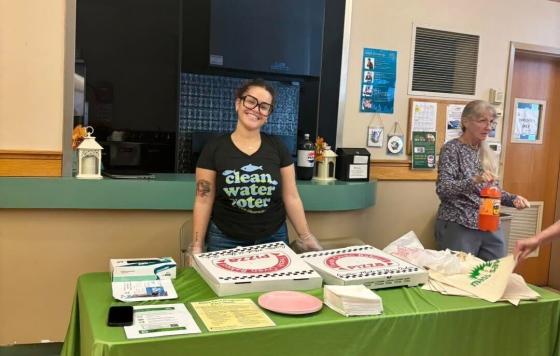
T.J.Maxx is a popular shopping destination for many Bostonians because it offers a wide variety of products at often discounted prices. It is almost like a routine for me to pick up some vegan snacks at the Allston T.J.Maxx on weekends. Every time I go shopping, I have the habit of collecting receipts to keep track of my spending. But last week, when I went to TJ Maxx to buy my favorite blueberry protein bars, I suddenly found myself unsure what to do when the cashier handed me the receipt. You may wonder why.
While interning for Clean Water Action, I learned that most stores, including T.J.Maxx, give out receipts that are lined with Bisphenols, a group of hazardous chemicals. It got me thinking, “how many times have I grabbed these receipts in the past and how many toxic chemicals have I been storing in my budget notebook over the years?” (Think about the exposures that cashiers get!)
Bisphenols could cause irreversible health damage to us, particularly to those who are most vulnerable including employees at TJX stores, pregnant women, infants, and children. Bisphenol-A (BPA) acts as an estrogen mimicker that causes miscarriages and premature birth for pregnant women. BPA also has been linked to serious adverse health effects such as increased risk of obesity, prostate cancer, and heart disease. Receipt papers with Bisphenols are a problem because BPA can be easily absorbed through skin contact and enter the bloodstream! Scientists have found that prolonged BPA exposure from skin contact is even greater than exposure via other sources, like drinking water from a BPA bottle or eating canned foods coated with BPA.
In 2018 T.J.Maxx’s parent company, TJX, which is headquartered in Framingham, MA, produced a sustainability report indicating that it replaced BPA with Bisphenol-S (BPS), but BPS can be just as bad. The Ecology Center’s Healthy Stuff program tested 207 paper receipts from major retailers and detected BPS in receipts from TJX stores.
Unfortunately, bisphenols in receipts is just one example of the toxic chemicals that retailers should be protecting their customers and workers from; the products they sell can be made up of hundreds of different chemicals, many of them toxic. T.J. Maxx has not taken public action to eliminate chemicals in its stores, like getting rid of toxic receipt papers, so the company received a failing grade in the both the 2017 and 2018 Mind the Store retailer report cards. The report card, which comes out annually, evaluates some of the largest retailers on their activities to reduce the use and sales of toxic chemicals.
Because TJX is a Massachusetts-based company, Clean Water Action’s Massachusetts team is very disappointed in that failing grade! In 2017, Clean Water activists visited TJX branches in their area and spoke to store managers, asking them to take the issue of toxic chemical exposure seriously.
Even after several years of customer requests, TJX has not taken any meaningful action. So, Clean Water Action is going door to door and throughout communities to urge TJX customers and other concerned residents in Massachusetts to tell TJX, it’s time to take action.
TJX is worth $65 billion so it is undoubtedly capable of using non-toxic receipt paper and putting some meaningful effort into get toxic chemicals out of its supply chain. All TJX needs is a willingness to stand up for the well-being and health of its employees and customers! Many large retailers such as Walmart and Target have started on a path towards becoming more health conscious corporations, TJX should follow suit. Please add your voice today!


